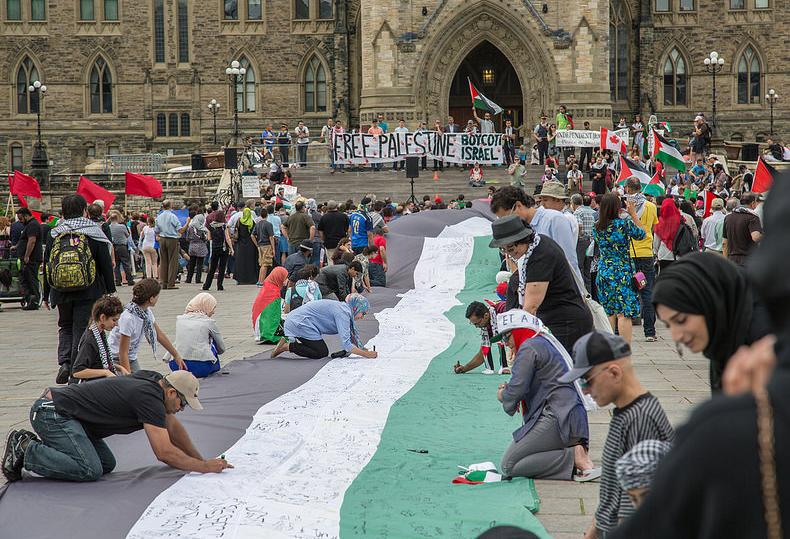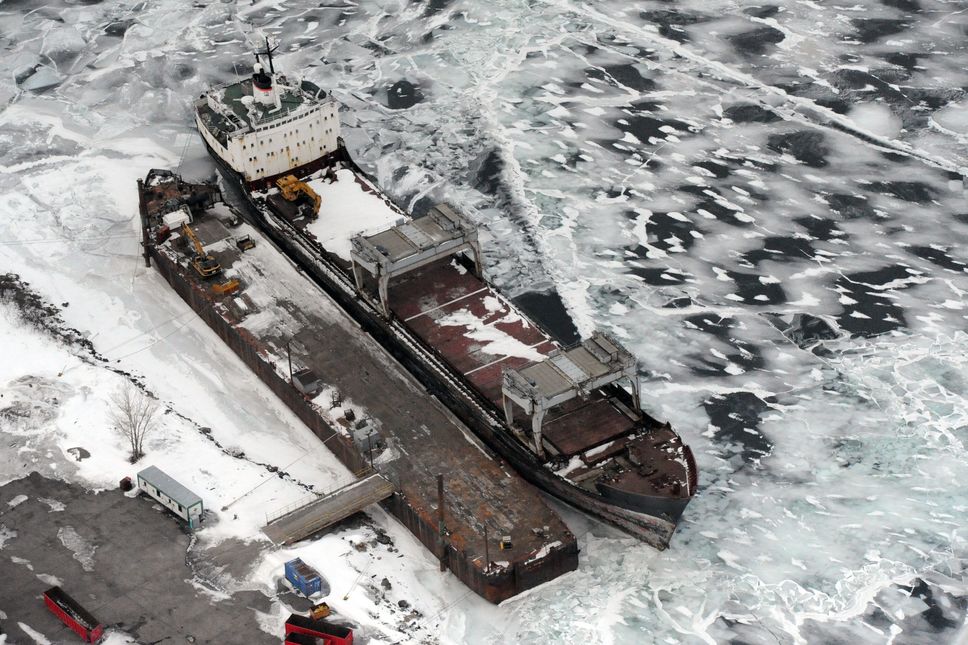With unprecedented violence and extremism currently ravaging the Middle East, it becomes difficult to focus on what has been a handicap to Middle Eastern prosperity for many decades: the Israel‐Palestine conflict. The widespread public support (be it for Israel or Palestine) that emerged throughout Canada during Israel’s latest military operation in the Gaza Strip stood as a strong reminder that the well-being of the region and its people is deeply engrained in the hearts and minds of Canadians. After all, Canada has consistently vowed its unequivocal support for a lasting peace amongst Israelis and Palestinians, demonstrated most recently in supplying nearly $20 million through the World Food Programme to the battered Gaza Strip and, before that, at the 2007 Paris Donors conference, in committing $300 million to improve Palestine’s (and, in turn, Israel’s) security and governance.
Canada’s history of supporting the peace process and condemning politically motivated violence stems from the essential framework established in the 1993 Oslo Accords, along with the Quartet Principles. Times, however, have changed, and so must the Canadian approach towards the structure of negotiations, as the current method has failed to yield serious results. Any arrangement short of such change would, ultimately, lead to a enduring impasse in the peace process and a further fragmentation of Palestinian territorial integrity in the face of land overtakes and settlement expansion. This rapid disappearance of Palestinian land, coupled with harsh living conditions and growing frustration amongst more moderate parties will eventually lead to a permanent stalemate in diplomatic affairs. In addition, it would eliminate any hope of establishing a Palestinian state in accordance with UN Security Resolutions 242 and 338; resolutions Canada has supported and committed itself to long ago.
Palestinian Ex-PM Salam Fayyad suggests a proposal to repair the framework of the peace process that could be utilized for purposes of Canadian policy quite effectively. He suggests an “adjustment to Palestinian representation” through granting Palestine’s Unified Leadership Framework (ULF), which contains members from several parties, the authority to advise the Palestine Liberation Organization (PLO) on issues that are of high concern to the Palestinian nation. This ensures true representation while maintaining what would become a symbolic status of the PLO as the sole representative of the Palestinian people, as recognized by Israel through the Oslo Accords. Making this adjustment is necessary due to the failure of Oslo in establishing a Palestinian state and the subsequent diminishing popularity of the PLO, which lead to increased support for unaffiliated factions that were not as committed to the platform of non-violence.
This lopsided diplomatic commitment towards a mutual peace has been a fundamental factor behind the consistent failure of the peace talks, as it rests its legitimacy on a set of outdated circumstances in a time that has already passed, says Fayyad.
A dditionally, Fayyad suggests an alteration of the fundamental terms of the peace process as established by the Oslo Accords. He proposes that Palestinian factions return to the approach of non‐violence, that Israel nullify the “asymmetrical” Oslo framework by recognizing Palestine’s right to a state within the ’67 borders, that Palestinian national unity no longer be hindered by an attempt at strict adherence to the Quartet principles, and that Israel, through mutual agreement, accept an “internationally mandated date to end its occupation.”
dditionally, Fayyad suggests an alteration of the fundamental terms of the peace process as established by the Oslo Accords. He proposes that Palestinian factions return to the approach of non‐violence, that Israel nullify the “asymmetrical” Oslo framework by recognizing Palestine’s right to a state within the ’67 borders, that Palestinian national unity no longer be hindered by an attempt at strict adherence to the Quartet principles, and that Israel, through mutual agreement, accept an “internationally mandated date to end its occupation.”
Currently, Canada’s policy on working towards a comprehensive and lasting peace is based entirely on the Oslo Agreements and the Quartet framework. The asymmetry that Fayyad speaks of in his essay is inherent in the Oslo Accord through a recognition that is, quite clearly, unequal in proportions. While the PLO recognized Israel’s right to exist as a state in peace and security in 1993, this stance was not reciprocated by Israel. The PLO was recognized merely as the “representative of the Palestinian people” with no mention of Palestinian pursuit for statehood. This lopsided diplomatic commitment towards a mutual peace has been a fundamental factor behind the consistent failure of the peace talks, as it rests its legitimacy on a set of outdated circumstances in a time that has already passed, says Fayyad.
To maintain Canada’s unwavering support for peace in the Middle East, to alleviate the hardships this conflict is causing, and to foster a prosperous and peaceful future for the people of the region, Canada’s policy towards the conflict must be altered to allow for the establishment of equal basis of negotiation between the Israeli and Palestinian governments by recognizing Palestine as a state. A comprehensive peace deal between Israel and Palestine would heal a large wound in inter-Arab relations, and provide Canada with a massive united ally in the Arab nation to battle extremism within the Middle East. Canada should, also, consider encouraging mutual economic cooperation as a means towards enticing unwilling parties to partake in serious negotiations and supporting the establishment of a date, through the Security Council, to cease Israel’s military occupation.
In addition, with her long history of supporting democracy and good governance, Canada would be wise to empower non-PLO factions in Palestine to ensure widespread representation of Palestinians with regards to matters of national interest. Not only would these changes accelerate the pace at which peace can be achieved, they would also send a strong message to the international community that Canada’s allegiance is to justice and peace. Additionally, they would reiterate Canada’s commitment to its Arab and Jewish communities, unquestionably demonstrating that the well being of the Middle East and the development of peace between Israel and Palestine is of tantamount importance to the Canadian people and, accordingly, to the Canadian government.





